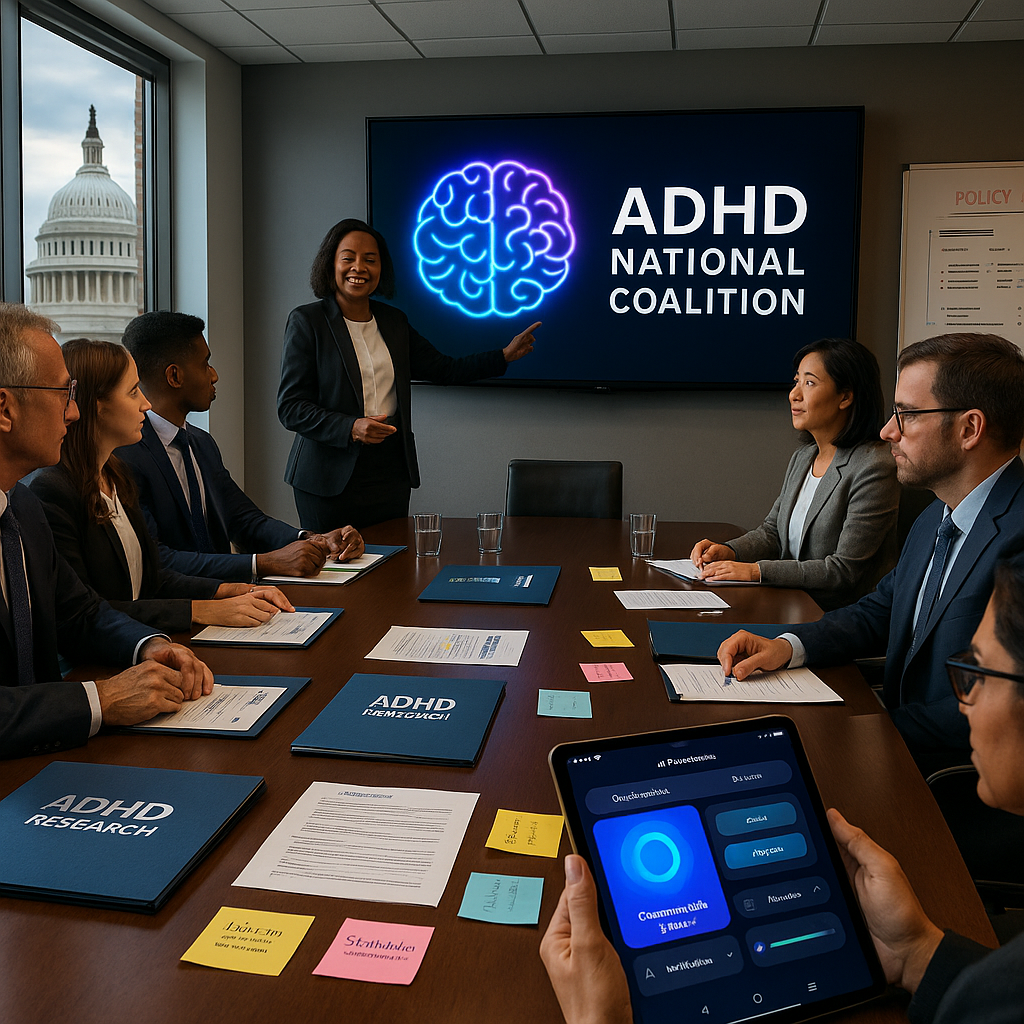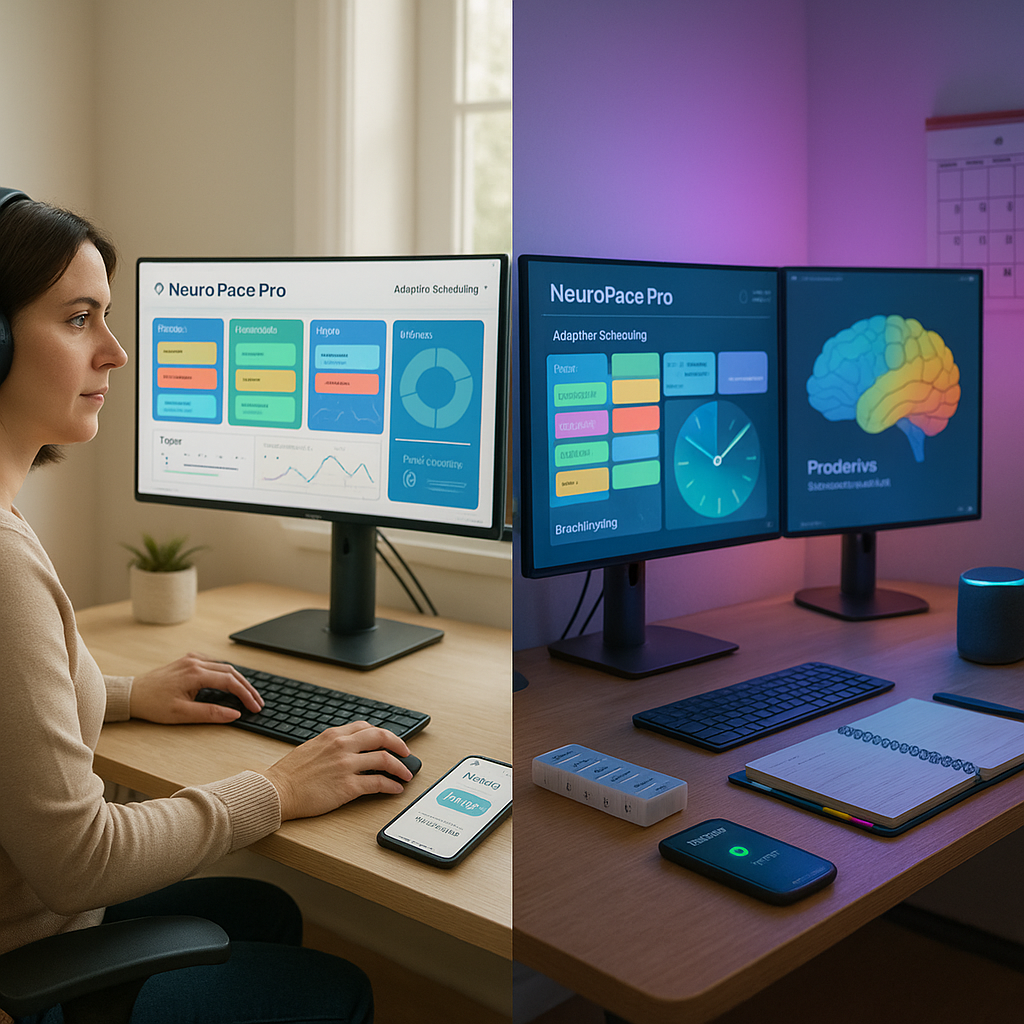Key Takeaways
- Top story: A national ADHD lobbying alliance has launched, aiming to influence public policy based on current research.
- A major study urges changes to adult ADHD diagnostic criteria, citing rising misdiagnosis and ongoing medication shortages.
- AI productivity tools tailored to ADHD cognitive styles are seeing growing user adoption in professional settings.
- Research shows that sleep loss severely impacts brain connectivity among youth with ADHD.
- Innovation in technology and clinical practice demonstrates the field’s dynamic response to lived neurodivergent experience.
Introduction
On 28 September 2025, a new national ADHD lobbying coalition launched, aiming to drive evidence-based policy change and mark a significant development in ADHD news and developments. The day’s press review highlights calls to revise adult diagnostic criteria and underscores how research and advocacy are reshaping the understanding and support of neurodivergent experiences.
Top Story
National ADHD Lobbying Coalition Launches
A new national ADHD lobbying coalition was officially launched on 28 September 2025. The coalition’s primary objective is to advocate for public policies grounded in current scientific research, with a focus on supporting neurodivergent individuals effectively.
Coalition leaders stated that their approach will emphasize collaboration with legislative bodies and stakeholder organizations. The group’s initiatives are designed to promote access to evidence-based care, address systemic barriers, and ensure that emerging research informs health and workplace regulations.
Experts in the field noted that this development could represent a pivotal moment in the creation of more inclusive neurodiversity policies and public awareness.
Also Today
Study Recommends New Adult ADHD Diagnostic Criteria
A major multicenter study called for updated adult ADHD diagnostic criteria. Researchers, reviewing data from clinical reports and population studies, highlighted the risks of misdiagnosis and noted a rise in diagnosis rates that coincide with ongoing medication shortages.
Study authors attributed these trends to outdated diagnostic frameworks and inadequate support structures. The findings have prompted discussions among health policy experts regarding the need for revised screening guidelines and expanded care access.
Medication Availability Sees Improvement
Since July 2025, manufacturing capacity for ADHD medications has increased by 30 percent. Distribution networks and U.S. pharmacies have reported improved supplies, easing the shortages that had previously affected patients nationwide.
Pharmacists and healthcare professionals welcomed the increased availability, noting improved continuity of care for individuals relying on medication as part of their treatment plans.
Also Today
AI Productivity Tools for ADHD Gain Momentum
Interest in AI-powered productivity tools designed for ADHD cognitive styles continues to grow among professionals. A selection of recently launched platforms offers personalization features that adapt to individual focus patterns and workflow needs.
Several major technology companies introduced workplace accommodation tools that include ADHD-friendly interfaces and customizable focus modes. Early adoption by Fortune 500 companies indicates the potential for these tools to improve productivity and support neurodivergent employees.
New Research on ADHD and Sleep Loss in Youth
Recent research has demonstrated that sleep deprivation has a severe effect on brain connectivity among young people with ADHD. According to the study, disrupted sleep patterns compound challenges associated with attention and executive function.
Healthcare practitioners noted the importance of sleep management in treatment plans for patients in this group.
Also Today
Research Highlights Environmental Impact on Executive Function
Researchers from Harvard Medical School have identified specific environmental factors that substantially influence executive function in adults with ADHD. The study suggests that targeted interventions within home and work environments can improve cognitive outcomes.
Strength-Based Framework Introduced
A collaborative effort among neurodiversity advocacy groups has resulted in a new strength-based framework for interpreting ADHD traits in professional contexts. The model places emphasis on innovation capacity and creative problem-solving, offering an alternative to deficit-focused approaches.
What to Watch
- International ADHD Conference: 15–17 October 2025, Boston
- WHO Neurodiversity Guidelines Release: 20 October 2025
- Global ADHD Awareness Summit: 5 November 2025
- Major insurance policy changes take effect: 1 January 2026
Conclusion
Current ADHD news and developments reflect rapid advancements in diagnostic approaches, improved medication access, and a surge in technology designed for neurodivergent professionals. These trends underscore evolving clinical standards and a broader recognition of diverse cognitive needs in policy and the workplace. What to watch: major policy updates and global ADHD-focused events in October and January will have significant implications for advocacy, treatment, and greater workplace inclusion.





Leave a Reply